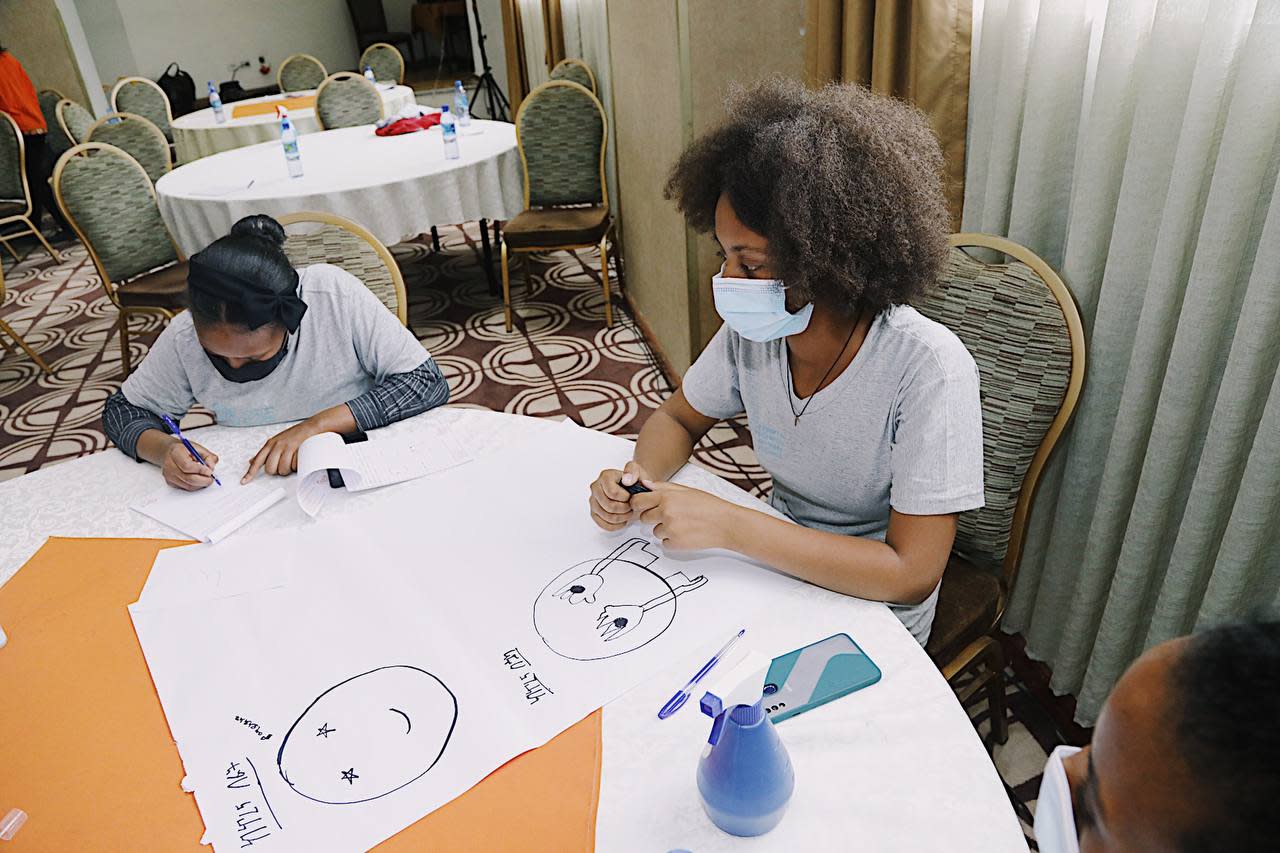
Girls from four districts — Addis Ababa, Amhara, Oromia and Sidama — participated in the two-day event at the Capital Hotel in Addis Ababa.
As a new school year in Ethiopia approaches, leaders are focusing on how to prepare students, families and educators for a safe return to the classroom following COVID-19 school closures. To ensure girls’ opinions inform their plans, Malala Fund Education Champions in Ethiopia organised an event so that girls could share their experiences and tell government leaders what they need to continue learning safely.
Girls from four districts — Addis Ababa, Amhara, Oromia and Sidama — participated in the two-day event at the Capital Hotel in Addis Ababa. With educators from their districts, girls discussed the shared and unique barriers to education they face and drafted a list of priorities for a safe school reopening. They then led conversations with policymakers from the Bureau of Education, the Ministry of Women, Children and Youth Affairs and other prominent government and nonprofit organisations about what improvements they want to see this year in the education system.
To address the impacts of COVID-19 on education, the Ethiopian government implemented a rotating schedule that permits students to attend classes only three times a week. But girls and young women say this new system is making it harder for them to learn. Because of social and community norms, girls are expected to spend their days at home taking care of household chores and family responsibilities instead of studying. In their address to leaders, the girls emphasised that parents and family members regarded the three-day schedule less seriously and encouraged their daughters to stay at home full-time instead. "In a society that already considers education for a girl as a privilege, not a right, class being just three days per week is making parents and society take girls' education as a joke,” says Atsede Moginent, a young woman from Bahirdar. “Many girls have been married and stopped going to school.”
The girls at the event compiled a long list of recommendations, including calls for safer schools, better COVID-19 protection guidelines and a consistent classroom schedule. They proposed updated curriculums that teach about safeguarding, ensuring schools implement a system to report harassment at school and hiring school counsellors with expertise in gender-based violence. Girls also expressed concern over the inadequate protective supplies in schools like masks, hand sanitiser, water and soap. They stressed that toilets and classrooms are often dirty and not maintained to the appropriate standards of safety amid the ongoing pandemic.
Over the past year and a half, Malala Fund Education Champions in Ethiopia have been addressing the barriers affecting girls’ enrolment and retention rates during the pandemic by advocating for gender-responsive education funding and policies and providing girls with alternative learning, reenrolment and catch-up support. "It is central to our COVID-19 campaign that our approach is girl-centred. Bringing girls from different backgrounds together under one roof gives them the opportunity to identify their unique challenges and work together to propose possible solutions," says Selome Taddesse, Malala Fund’s In-Country Representative in Ethiopia. "By making sure girls representing various identities, communities, religions and regions are present in the room, we ensure an inclusive and holistic approach that incorporates the diverse challenges girls face in Ethiopia."
Before the pandemic, Ethiopian girls struggled to access free, safe, quality education. Reports of abuse and sexual violence in school environments were common. Inadequate bathrooms and lessons that reinforce gender discrimination made it harder to succeed. Child marriage, economic hardship and lack of sanitary pads and relevant toiletries further disrupted girls’ education. While the country has made strides in expanding its education system over the last two decades, the COVID-19 crisis amplified the inequalities girls already faced, threatening these gains and preventing girls from completing their education.
The event at the Capital Hotel created an open dialogue between girls and decision-makers about the threats to girls’ education in Ethiopia — a key step in ensuring leaders craft COVID-19 recovery plans with the needs of all students in mind. With girls at the helm, Ethiopia’s leaders can take action now to strengthen education systems against future shocks and give every girl the opportunity to choose her own future. This is something that Erkam Teybib, one of the students from Adama, wants the government to understand: "Provide us with the necessary equipment, give us an equal playground and we will show you where we can go!"
